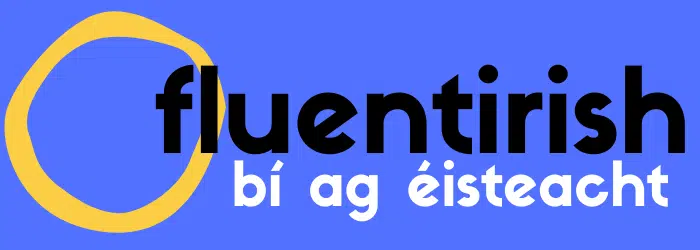Irish Language Rights In Ireland 🇮🇪
Irish Language Rights In Ireland 🇮🇪: You and I have rights just as much as the next person! The public of Ireland, particularly the Irish speakers, have their set of rights under the Official Languages Act 2003. Discover what they are in this blog. Read on to learn more.
One of the most important reasons why Irish, despite being the country’s official and first language under the Official Languages Act, is rarely ever used anywhere is because you literally can’t use it almost anywhere. As a parent, before you decide to raise your kids with Irish, think about this first: “What use is Irish for my child?”
Even in court, one will seldom hear the use of Irish or Gaelic, but instead, hear English. In fact, the use of Irish is even met with utter reluctance and hostility.
An Irish Times article mentioned the following:
“Despite a number of positive provisions, planning for services in Irish was left to the organisations themselves and there were no sanctions for failing to act as promised.
“The situation is reminiscent of the bad old penal days: the State does not, de facto, recognise any such person as an Irish speaker to exist. It is an extraordinary fact that it is not illegal for any State body to use English and English only in Irish-speaking areas.”
It wasn’t until the signing of the Official Languages (Amendment) Act 2021, which strengthened the Act that things would start to change.
Nonetheless, it is good to recognise your rights as an Irish speaker. As an Irish, Gaeilge still has a constitutional status (i.e., recognised as the official language) and you have every right to use it in public.
Below, we cover the Irish language rights in Ireland we have under the Official Languages Act which became law in 2003 and how it was fortified almost 2 decades later. We suggest that you read on to learn more.
>>Check out the latest podcasts on FluentIrish.com – and start improving!
What are Irish language rights in Ireland?
First off, what is the Official Languages Act 2003?
It was an Act signed into law on 14 July 2003. The primary objective of the Act is to ensure the improved provision of public services through the Irish language.
This is done through the provisions of the Act along with regulations made by the Minister for Tourism, Culture, Arts, Gaeltacht, Sport, and Media which apply to all public bodies under the Act.
Simply put, you, as an Irish speaker, have the following language rights in Ireland.
The public has the right to, according to An Coimisinéir Teanga:
- expect that public bodies will comply with any regulations made under this Act in relation to the use of Irish in signage, stationery and recorded oral announcements,
- receive replies in Irish from public bodies to correspondence by post or by email written in that language,
- expect that public bodies will send information (for example mail shots) by post or email to the public in general or to a class of the public in general in Irish or bilingually, and
- expect that public bodies will publish certain key documents, confirmed in the legislation, simultaneously in Irish and English including any document setting out public policy proposals, any annual report, any audited accounts or financial statements and particular strategy statements.
More Official Languages Acts Rights
- A person has the right to conduct his/her business before the Houses of the Oireachtas or before Oireachtas committees, sub-committees and/or joint committees through Irish (Section 6 of the Act).
The public has the right to:
- expect An Coimisinéir Teanga to enquire into any valid complaint where public bodies are considered to have failed to fulfil their duties under the Official Languages Act, under any regulations made under the Act and/or under any scheme confirmed with a public body under the Act. The public has the right also to expect An Coimisinéir Teanga to investigate any valid complaint in which it is alleged that the provisions of any other enactments relating to the status or use of Irish have been contravened, and
- expect to receive advice from the Office of An Coimisinéir Teanga regarding their language rights under the Act.
Irish language rights in Ireland: strengthened by Official Languages (Amendment) Act 2021
As mentioned above, the Official Languages Act of 2003 failed to allow Irish-speaking citizens the right to conduct business with the State and State institutions in the Irish language.
So there was yet another law passed called the Official Languages (Amendment) Act 2021 which was signed by the President of Ireland on 22 December 2021. This new legislation strengthened the 2003 Act, and all recognised its ability to make a significant contribution to the quality of services in Irish provided to the public by State bodies.
Aim of the Official Languages (Amendment) Act 2021
The main goals of this 2021 Act are that 20 per cent of new recruits to the public service will be competent in Irish by the end of 2030, that all public services in the Gaeltacht and for the Gaeltacht will be provided in Irish and that all public offices in the Gaeltacht will operate through the medium of Irish and that a National Plan for the Provision of Public Services in Irish will be developed.
The Department is working to commence all sections and provisions of the Act on an incremental basis.
Learn Irish through Fluentirish
Now that we have shared with you the Irish language rights in Ireland that you should be well aware of, we want to discuss how we can help you in everything Irish-related.
ba mhaith linn plé leat freisin conas is féidir linn cabhrú leat i ngach rud a bhaineann leis an nGaeilge.
If you can understand simple Irish, you will want to improve. Fluentirish is here for you. Listen every day to get on with Irish.
Má tá tú ábalta Gaeilge shimplí a thuiscint – beidh tú ag iarraidh biseach a dhéanamh. Tá Fluentirish anseo faoi do choinne. Bí ag éisteacht gach aon lá chun a bheith ag gabháil ar aghaidh i nGaeilge.
We provide informative blogs and helpful podcasts that can help in your quest to learn the Irish language.
>>Which level?: Find out which level of spoken Irish you understand!




